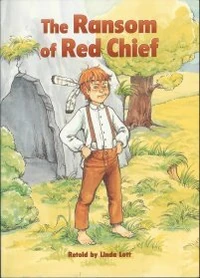I feel blessed that I've been around a lot of different types of people. I grew up in a Democratic area of a Republican state and as an adult, I moved to a Republican area of a Democratic state. It's given me the opportunity to talk and listen to people from all walks of life and their concerns and dreams for our great country.
I'll never forget the election of 1996. I was just a kid, but I remember my dad placing his sign for Bob Dole in our front yard. Our neighbor came out and saw what he was doing and exclaimed, "Hey, that reminds me!" He charged into his house and came out whistling with his Clinton/Gore sign. He popped it into his front yard and he and my dad laughed. They chatted for a while, shook hands, and went back to their respective houses. Never for a moment did he ever doubt that they both loved this country. Their friendship is STILL ongoing, leaving house keys with each other during every trip, making conversation, etc. Different opinions, still friends.
That type of behavior is becoming rarer, sadly. We've lost the ability to listen and learn and engage respectfully. Every political season, I am reminded of how much I loved teaching debate in the classroom. When you teach debate in the truest sense, students are forced to prepare to defend both sides of an issue- regardless of their feelings on the matter. Debate taught me that there is so much more than just my own perspective and I can always listen with empathy, even if I disagree. Debate is learning the persuasive appeals, how to avoid logical fallacies, and how to pull together an argument. No matter how unsure students were about debate before we started, they almost always started to enjoy it once they got to tackle an issue they had an interest in. I started with a topic I thought they would find interesting (coffee seemed to be a crowd-pleaser) and moved to more serious topics as we progressed.
With the US election ramping up, it's an easy introduction to several hot-button topics. I would encourage teachers to keep the conversation open by not forcing kids to stump for a candidate, even just in a classroom setting. Think of policies they can look at both sides of! If they challenge policy, they can look at polls, previous elections (hanging chads, anyone?), facts, and figures. A good debate should lead students to do real research!
I structured a set of US Election debates to deal with three different topics: electoral college/popular vote, voter ID requirements, and voting machines/paper ballots. While some of these topics have threads of partisanship in them, I hoped that there would be plenty of information out there so students could stick with the facts and explore these topics past the lens of pure politics. You can find my US Election debate pack here.
What do you think? Are there other topics I should have included? Are some of the current topics too partisan in your opinion? I'd love to hear from you!
Until next time (unless the political ads kill us all),
Sarah 💗
Thanks to Paula Kim Studio for the election clip art used in this blog post and pins. You can check out her store here!
















